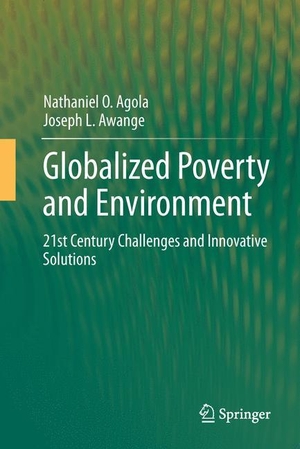Für statistische Zwecke und um bestmögliche Funktionalität zu bieten, speichert diese Website Cookies auf Ihrem Gerät. Das Speichern von Cookies kann in den Browser-Einstellungen deaktiviert werden. Wenn Sie die Website weiter nutzen, stimmen Sie der Verwendung von Cookies zu.
Cookie akzeptieren
Joseph L. Awange / Nathaniel O. Agola
Globalized Poverty and Environment
- Springer Berlin Heidelberg
- 2013
- Gebunden
- 396 Seiten
- ISBN 9783642397325
This book reviews the key conceptions and economic theories of poverty, explains poverty-environment nexus, and finally offers innovative socio- economic and scientific geospatial solutions for the 21st Century. The book makes it possible for our readers to understand poverty thorough a concise review of the major theoretical economic frameworks, measures of poverty, and points out the need to understand rural-urban dichotomy of poverty. We find the theories and measures to be less-than perfect and therefore point out the need to treat these measures and theories as convenient tools lacking perfect accuracy and utmost scientific reliability. It follows then that the supposedly knowledgeably crafted poverty reduction and
Mehr
Weniger
zzgl. Versand
in Kürze